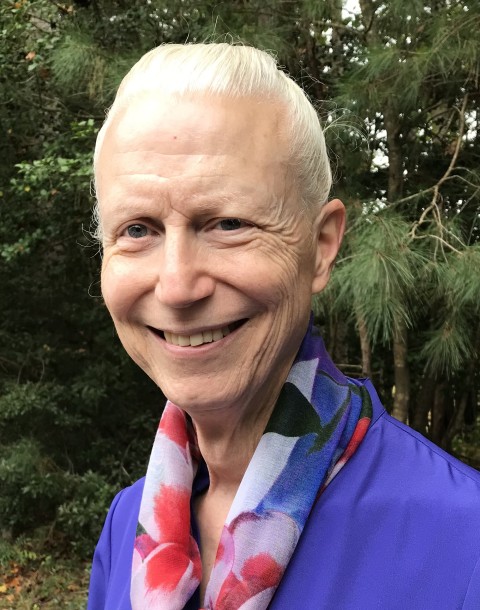Retired UMC pastor and bishop’s spouse opens up about gender transition

Because she wants to be a witness to others on a similar journey, minister Mary Johnson is beginning to share the story of her gender transition and her choice to now live fully as the person she feels God created her to be.
A retired pastor in the United Methodist Church, Johnson is married to UMC bishop Peggy Johnson, who retired as episcopal leader of the UMC’s Peninsula-Delaware and Eastern Pennsylvania Conferences in September.
“The greatest challenge was living in the closet,” Johnson said. For much of the past decade, she felt compelled to live two lives, pretending to be a cisgender male in most public settings and often silencing her voice so that she would not “become a problem” or a distraction from other ministries.
“First, I wanted to do no harm,” she said. “I tried to walk a fine line.”
Peggy Johnson agreed that living in the closet was difficult. “Being an active bishop with a trans woman spouse would be a challenge to my credibility if it was widely known,” she said. "Even now, after 11 years, it takes a measure of courage to ‘come out,’ given the liminal times in which we live, the sharp division in the church over issues of sexuality, and the general ignorance about this topic in society as a whole.”
Read our latest issue or browse back issues.
During the past decade, the couple has learned and gone on to teach others about transgender people and faith.
“As I entered into a greater understanding of the diversity of gender, I realized all binary thinking is flawed,” Mary Johnson said. “It’s a shorthand that’s easy because, with it, there’s right and wrong. But there are all kinds of folks. There are a multitude of kinds, and God loves them all. Understanding each other’s perspectives helps us understand God, because we’re able to see God in them.”
As she’s transitioned, Mary Johnson said, much of her daily life has remained the same. “The only things that have changed are the superficial things, like the clothes and shoes I wear. I wear a little more jewelry and wear scents that I enjoy,” she said. “I still go on walks with the woman I love and read three or four books at the same time. I still do my devotions and worship the God I serve.”
Peggy Johnson said that for Mary and her, “faith in God and God’s protective hand and guidance through it all has been the ‘tie that binds’ always.” As they move forward together, she holds close the embroidered picture her mother made and gave to them on their wedding day in 1978 that says, “To love and be loved is the greatest joy on earth.”
“Our journey of love in pastoral ministry, raising two sons, the episcopacy, and this transgender transition has been steeped in love, mutual respect, and sacrifice,” she said. “Love is not glamorous, but deeply real and it helps us greatly during this moment of revelation. Knowing we love each other and are surrounded by the love of God and people that understand makes us feel truly blessed.”
Since their retirements, the Johnsons have relocated to Virginia, where Mary continues to write communion liturgies for use in worship. She has also found a church home at a nearby UM church, where, she said, “they call me by name and treat me with respect.”
“I think that would crush me if I ever found out I couldn’t worship in the church,” she continued.
Bishop LaTrelle Easterling, a former colleague of Peggy Johnson’s who replaced her as head of the Peninsula-Delaware and Baltimore-Washington Conferences, considers it a privilege to have been invited to this part of the Johnsons’ lives.
“We should hold it as sacred,” she said.
Peggy Johnson offered a message to all those in the churches and conferences she and her spouse have served. “God loves all of you, just as you are,” she said. “Spread that unconditional love to the world and you will turn it upside down.” —Baltimore-Washington Conference of the United Methodist Church






